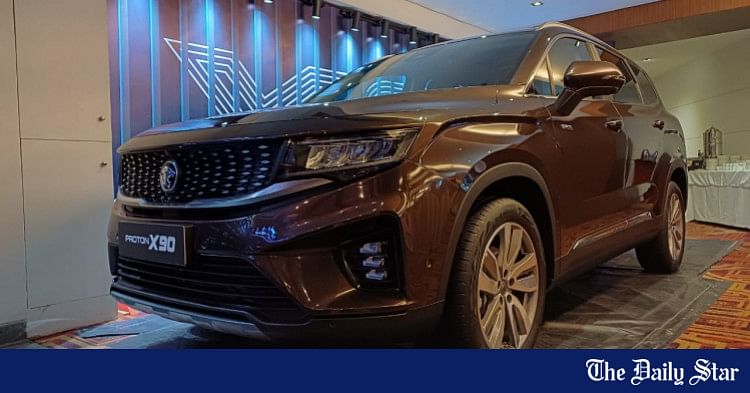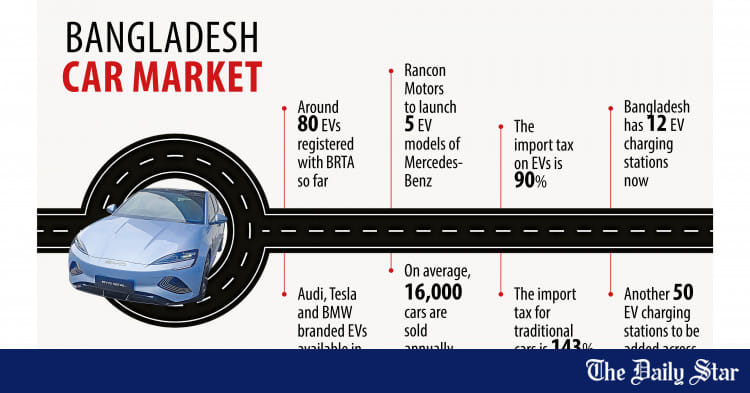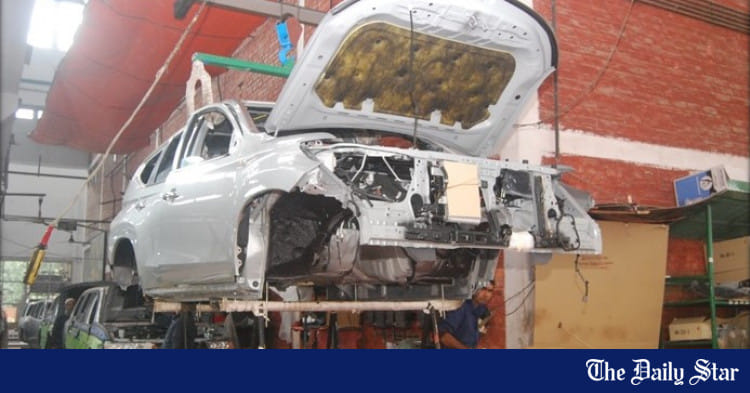Saif
Senior Member
- Joined
- Jan 24, 2024
- Messages
- 16,837
- Likes
- 8,152
- Nation

- Residence

- Axis Group


Proton X90 launched in BD; local production to begin by end-2024
Rancon and Proton Holdings have unveiled the Proton X90 hybrid vehicle in the Bangladesh market. In a launching ceremony today, Rancon and Proton also announced their joint plans to begin local manufacturing of Proton cars in Bangladesh by the end of this year.
Proton X90 launched in BD; local production to begin by end-2024
Rancon aims to begin local production of Proton cars in Bangladesh with an investment of US$100 million.

Proton X90.
Rancon and Proton Holdings have unveiled the Proton X90 hybrid vehicle in the Bangladesh market. In a launching ceremony today, Rancon and Proton also announced their joint plans to begin local manufacturing of Proton cars in Bangladesh by the end of this year.
The Proton X90 is equipped with a 48V mild hybrid system and a 1.5L turbocharged engine developed in collaboration with Volvo.
The vehicle is offered in two variants: the 6-seater Flagship and the 7-seater Premium, priced at Taka 49.90 lakh and Taka 45.90 lakh respectively, and will be sold at Rancon's showrooms in Dhaka and Chattogram.
According to Dr Li Chunrong, CEO of Proton, Rancon will develop a sales and after-sales network and invest in a manufacturing facility for Proton vehicles in Bangladesh. "We aim to become a significant entity in the automotive market of Bangladesh with our future product lineup," said Dr Chunrong.
Romo Rouf Chowdhury, Group Managing Director of Rancon Holdings Limited, stated that an investment of US$100 million has ben made in Rancon's own industrial park, with plans to start local production of Proton vehicles by the end of 2024 to reduce retail prices.
According to a press handout, Rancon will provide a five-year warranty or 150,000 km coverage (whichever comes first), along with six free after-sales services. Additionally, Rancon assures authorised after-sales service and genuine spare parts availability through its service centres in Dhaka and Chattogram.
Proton X90.
Rancon and Proton Holdings have unveiled the Proton X90 hybrid vehicle in the Bangladesh market. In a launching ceremony today, Rancon and Proton also announced their joint plans to begin local manufacturing of Proton cars in Bangladesh by the end of this year.
The Proton X90 is equipped with a 48V mild hybrid system and a 1.5L turbocharged engine developed in collaboration with Volvo.
The vehicle is offered in two variants: the 6-seater Flagship and the 7-seater Premium, priced at Taka 49.90 lakh and Taka 45.90 lakh respectively, and will be sold at Rancon's showrooms in Dhaka and Chattogram.
According to Dr Li Chunrong, CEO of Proton, Rancon will develop a sales and after-sales network and invest in a manufacturing facility for Proton vehicles in Bangladesh. "We aim to become a significant entity in the automotive market of Bangladesh with our future product lineup," said Dr Chunrong.
Romo Rouf Chowdhury, Group Managing Director of Rancon Holdings Limited, stated that an investment of US$100 million has ben made in Rancon's own industrial park, with plans to start local production of Proton vehicles by the end of 2024 to reduce retail prices.
According to a press handout, Rancon will provide a five-year warranty or 150,000 km coverage (whichever comes first), along with six free after-sales services. Additionally, Rancon assures authorised after-sales service and genuine spare parts availability through its service centres in Dhaka and Chattogram.


